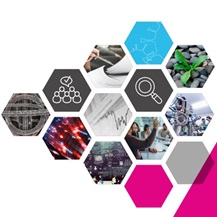Top business leaders share lessons from the Covid crisis in new report

Most businesses were ill-prepared to deal with the pandemic and muddled though the challenges stemming from it, according to a report published today.
Resilience reimagined: a practical guide for organisations was produced by Cranfield University, in partnership with the National Preparedness Commission (NPC) and Deloitte. The report presents insights from business leaders from a range of sectors and makes seven recommendations for organisations on how to become more resilient, drawing on lessons from past 12 months.
Cranfield University’s Professor David Denyer and Mike Sutliff conducted in-depth interviews and four focus groups with more than 50 C-suite level people (boards, senior executives, policymakers, and resilience directors) from FTSE 100 companies, multi-nationals and major national infrastructure organisations, many of them household names.
The report warns we are entering a new period of uncertainty and change, with an ever-increasing possibility that things will go wrong. It sought answers from leading figures about how resilience can be developed, who does it well and what other businesses can learn from them.
It also outlines practical steps necessary to strengthen resilience for long-term success and makes recommendations to business leaders on what more they can do to help their organisations to develop the ability to cope.
Cranfield’s research found that the organisations that coped best with the pandemic had already been doing the following three things:
- They understood what was most important to their customers and therefore what were the most essential things to continue to deliver as the crisis unfolded.
- If something went wrong, they knew what the thresholds of tolerable impacts to the customer/user were and had examined in advance alternative ways of delivering those outcomes that mattered the most.
- They had relentlessly stress tested for possible disruption without worrying about what type of threat they might have to face - a cyberattack or a pandemic – learning how to cope when under pressure from challenges that might not be foreseeable or imaginable.
Professor David Denyer, Professor of Leadership and Organisational Change at Cranfield University, said: “We do not know what shape the next crisis will take but we can take proactive action to prepare.
“Businesses and organisations need to seize the learnings from this crisis and develop the agility to cope with the next. Whether it is another pandemic, another financial crisis or threats from a cyber attack or climate change, the risks are multiple and complex but the capabilities of readiness, responsiveness, recoverability and regeneration, the 4Rs, are ones that can be ingrained.
“One of the reasons the financial sector coped better than most during the pandemic was that it had taken on the lessons from the 2008 crash. By going through that crisis, these organisations had stress-tested, they knew their tolerances and what an acceptable level of failure was to them and their customers.
“Our research, in partnership with the National Preparedness Commission and Deloitte, gives organisations vital practical steps to reimagine the way they think about resilience and respond to future crises.”
Lord Toby Harris, Chair of the National Preparedness Commission, said:
"The last year has been like no other for most business organisations, but some coped and responded much better than others. We asked Cranfield University to look at why this was and what the lessons are for the future.
The Government wants to build a whole-of-society approach to resilience, so that every business, every organisation and every individual can play their part in making sure that as a nation we can withstand any future crisis. This means changing organisational cultures to foster an active and agile response to events and this report highlights some of what is needed to make this a reality."
Rick Cudworth, Partner at Deloitte said:
“Dealing with complex events requires flexibility and creativity; dealing with future uncertainty requires the ability to change course and adapt rapidly. This report clearly shows that resilience is about much more than well-rehearsed plans. This is a fundamental change in thinking, which requires senior leaders to make strategic choices, balancing control, agility, efficiency and innovation. It is great to see leaders pointing to resilience being central to a new ‘social contract’ for responsible business
By adopting the seven practices in this report organisations will be able to build stronger resilience and be better positioned to thrive going forward.”





